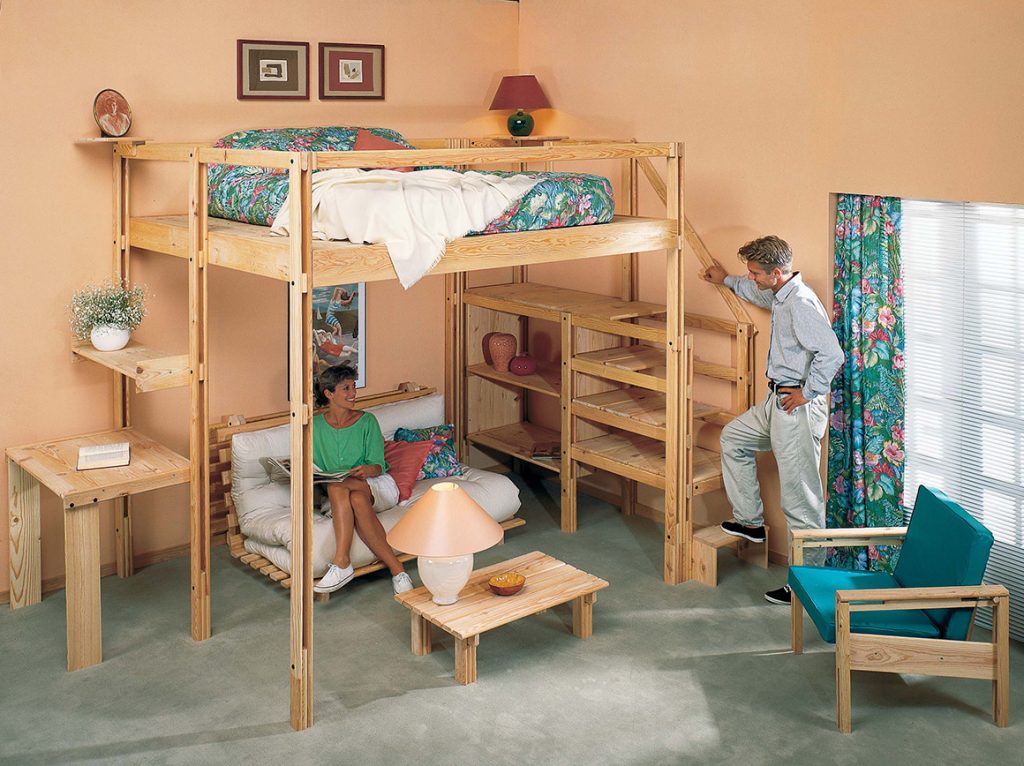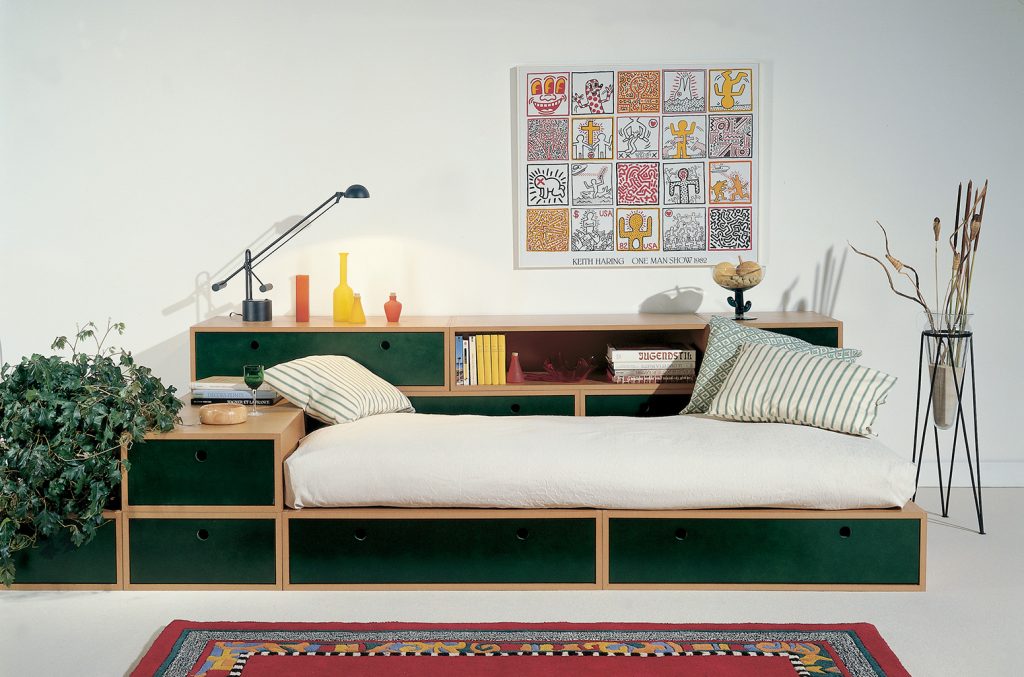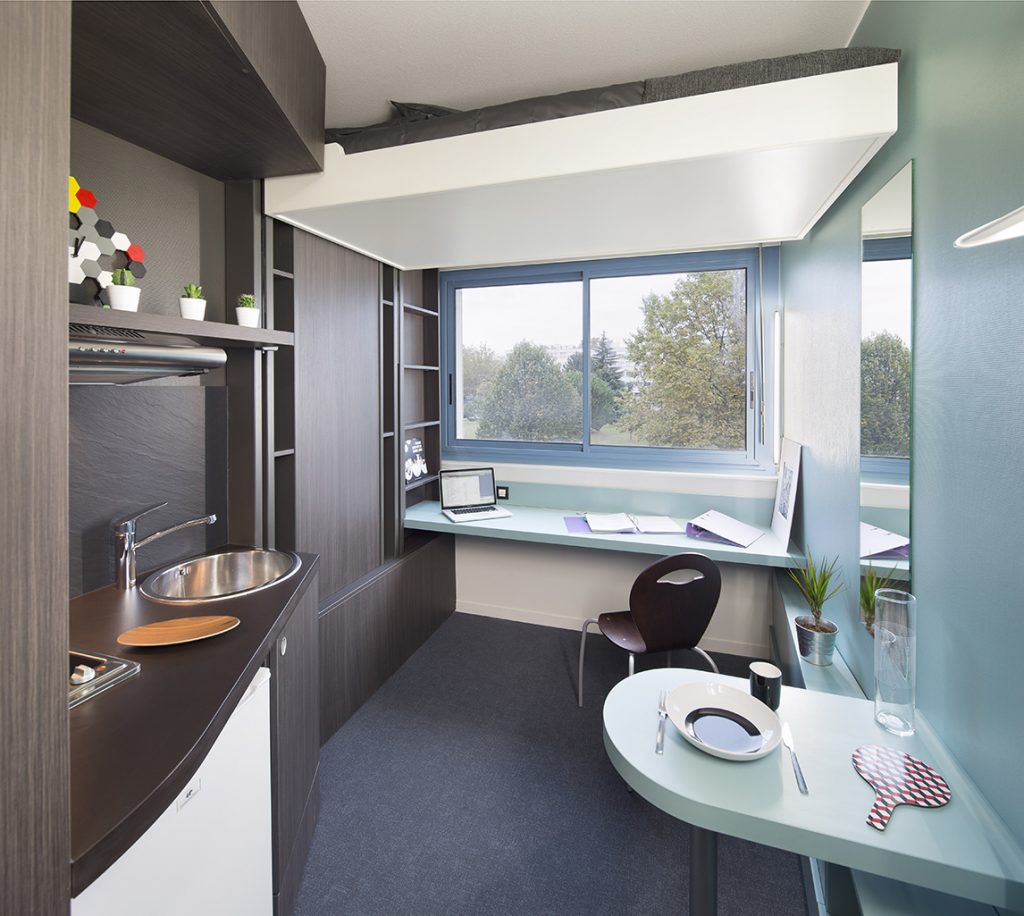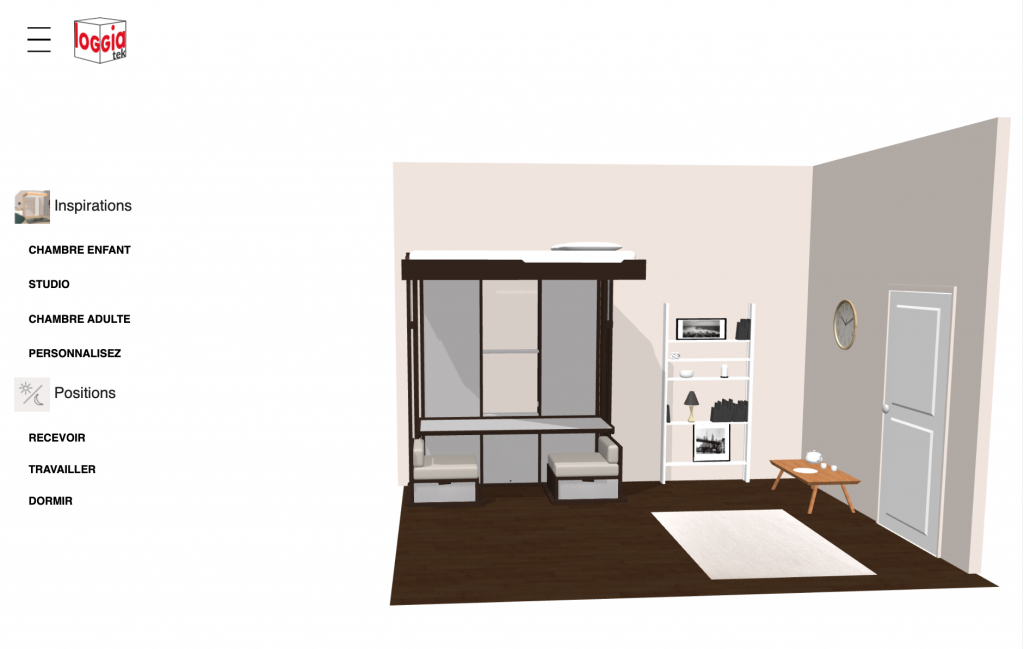Since the late 1970s, Espace Loggia design has been innovating to offer sustainable, space-saving layout and organization solutions.
A star on the cradle
The Espace Loggia revolution began in 1979, when actress Mijanou Bardot teamed up with a group of designers to introduce the mezzanine bed concept to France. Her project was in line with the evolution of the way people lived. At a time of the second oil crisis, when people were talking about both optimization and emancipation, the idea of supplementing floor space with several square meters of height opened up new perspectives in interior architecture.
Time for renewal
Philippe Malignac took over the company in 1992 when it was running out of steam. To revitalize the company, he focused on innovation and the relocation of production. The design office is strengthened by regular collaboration with designer Guillaume Parent.
The range diversifies. Cabinets, shelves and desks were added to the catalog. New flagship products are launched, including the best-selling Brick© and Champ Libre collections. Espace Loggia becomes a manufacturer to control all stages in the life of its creations, from design to installation.
Controlled development
Paul Malignac took over the reins of the family business at the age of 30. Attentive to the expectations of his generation and the market, he focuses his creative work on issues specific to the world of children, the time-shifted home, local authorities (CROUS and hotels), as well as Open Source furniture. New collaborations begin with designer Matali Crasset, VIA (Valorisation de l’Innovation dans l’Ameublement), the Faltazi Lab team, Nosigner and the Ligne Roset brand. The number of stores and shop-in-shops grows. In 2014, the Les Herbiers factory is completely renovated to absorb the increase in orders, which average 3,000 per year.
A step towards new technologies
Espace Loggia has evolved with the times, offering a diversified range of products through controlled development. Now, in the digital age, it’s time for 3D. Do you have a project in mind and want to visualize it? Loggiatek’s configurator makes it all possible. Dklé or triptych? Create your own design to match your room, save it, share it and make an appointment with your Espace Loggia consultant to complete your project.



